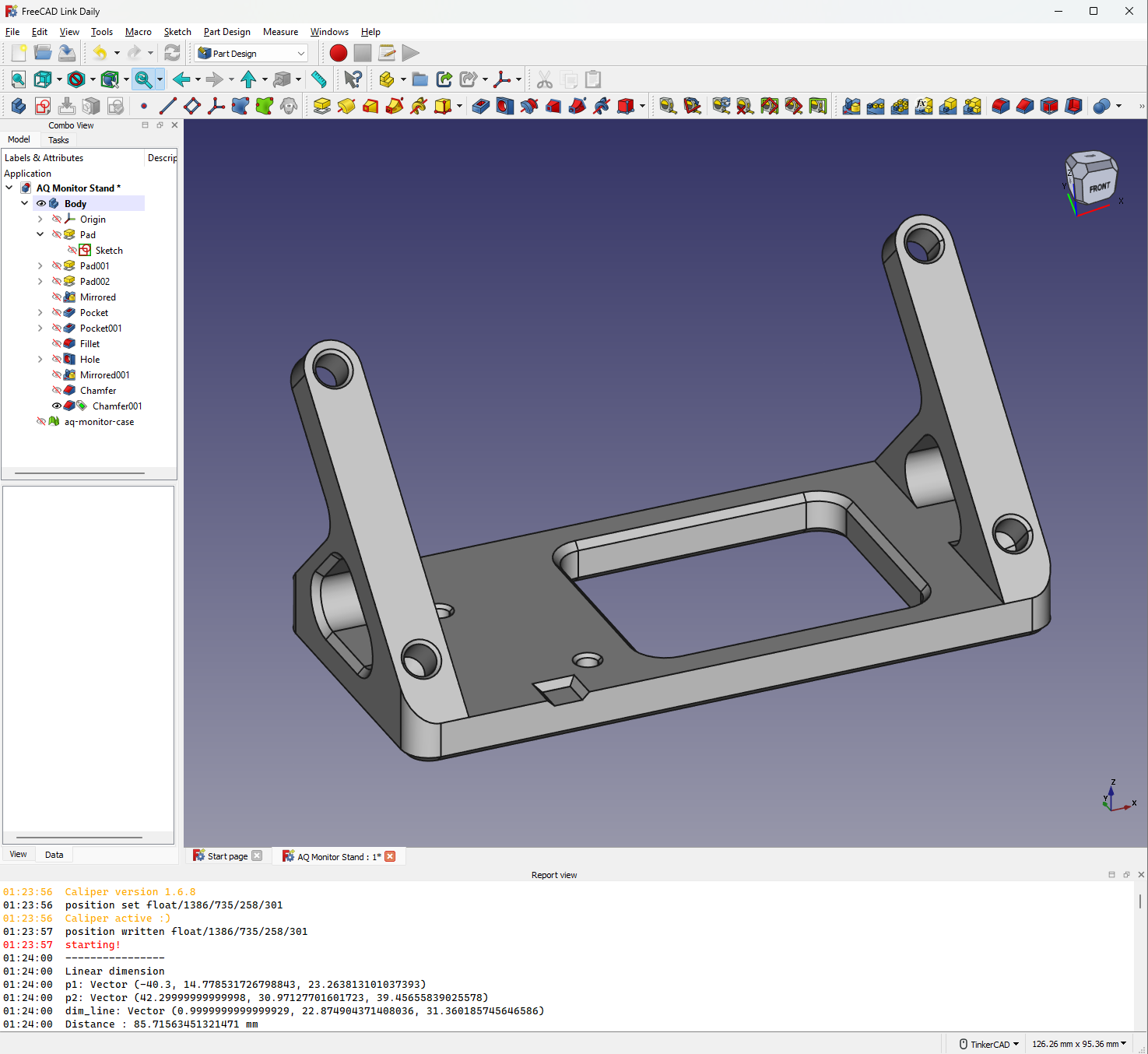Recently I've been having feelings about moving away from Fusion 360. The combination of cloud app / filesystem and their demonstrated willingness to remove features and add arbitrary limitations (eg. 10 editable model limit) makes me feel uneasy about using it. To be clear I'm grateful that AutoDesk provide a free license at all, and it's an incredible piece of software, but I have a sense of vulnerability while using and honing my skills in it. If you've ever rented a house you'll know the feeling - you quite don't feel like it's really your home, if the landlord wants to make renovate or redecorate you don't have any choice and you could be evicted at any moment.
So I tried FreeCAD. At first, I have to say that it felt a little like stepping out of a spaceship (Fusion) and banging rocks together like a caveman. It's not that you can't do (most) of the same things as an enterprise CAD package, but the killer feature of Fusion is the level of intuitiveness and "it just works" that makes FreeCAD seem like trying to write Latin.
After a week of on-and-off learning I was not sure I wanted to continue. Even after getting comfortable with the basics, frustration levels would spike to 11 sometimes. The main issue I kept running into was that altering a previous feature would break everything that came after, requiring a varying amount of work to fix. The FreeCAD wiki suggests ways to mitigate this but many of them are un-intuitive and/or inconvenient. After some googling this seems to be caused by a pretty difficult to solve issue called the "Topological Naming Problem" (where FreeCAD can't keep track of surfaces / edges / vertexes in a stable fashion when features are changed). Then I came across this blog post that pointed out a fix has actually been developed earlier this year. A developer by the name of RealThunder has created a fork of FreeCAD called "Link Branch" which can track topology in a (more) stable fashion.
I tried this branch and was blown away by how much more usable it is. Not only can it handle changes to past features almost perfectly, but I can create multiple bodies from a single sketch (not possible before) and there are other UI tweaks that make creating features easier such as the ability to preview fillets and chamfers at the same time as selecting their edges. I'm not totally sure which of these features are unique to Link branch vs which might be pre-release in the main branch, but certainly the topology naming fix is unique to Link.
So if you have tried FreeCAD in the past and been frustrated, or if Fusion's past free license changes or price increases are making you uneasy, give the Link Branch a try! Downloads are available in the releases page.

I don't use it for.. reasons, but I suspect orcaslicer has picked up a lot of what made superslicer special, and is actively maintained.
What slicer do you personally use?
I use the original, prusaslicer. Orcaslicer does a good job of packaging and releasing bambulab's fork but I'm not yet convinced that their UI is a net win, it's super glitchy at times (at least on Linux), depends on closed-source Bambu features (network plugin), has features missing (fix model only available on windows) and is easy to fault (you can easily let it do stupid things because of combination of options developers didn't foresee). That said, it's compelling prusaslicer to give its UX some polish and to backport some advanced features, so this competition is good and no option is inferior or feels like you are missing out in practice.
Thanks for the feedback. I think I'll make a run at getting PrusaSlicer well tuned on this printer. I had used PrusaSlicer for quite some time on my i3 clone, so I'm pretty familiar with it. I'm generally happy with SuperSlicer, but it struggles with things like 45% overhangs that are cone shaped and PrusaSlicer handles those with ease. My first PrusaSlicer print on this printer had tons of top layer gaps om narrower features. Before digging in, I was thinking about what slicer I should spent the time on. Time to go back to basics.
Yup, in the end the best slicer is the one you know best and get stuff done with :)
Not OP but orcaslicer is very nice, it's my daily driver for sure